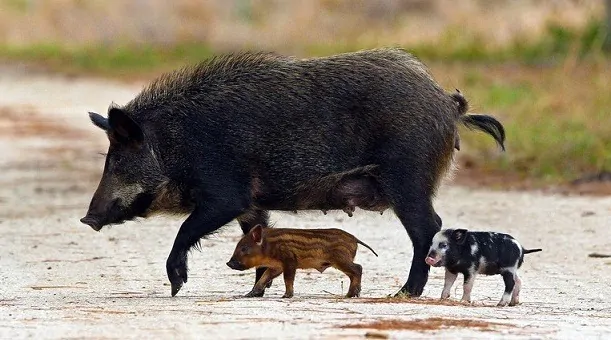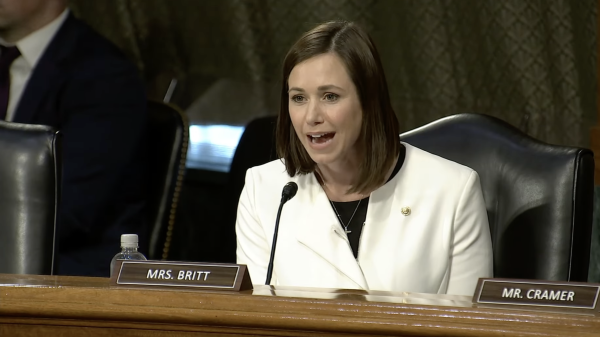By Brandon Moseley
Alabama Political Reporter
Tuesday, May 12, the Alabama House of Representative passed HB315 making it a Class B misdemeanor to transport and release live feral swine in the State. The bill is sponsored by state Representative Reed Ingram (R-Montgomery).
The bill also establishes a mandatory minimum fine of not less than two thousand five hundred dollars ($2,500).
Wild hogs are a growing problem in Alabama.
The Department of Conservation and Natural Resources administratively has also reclassified hogs as a fur-bearing species instead of a game species. That means that licensed trappers can sell the carcasses to willing buyers…..something we can’t do with a game species.
Would-be hog meat marketers are warned however to be very careful in the butchering and handling of hog carcasses, because they are a reservoir of the brucellosis disease which can be debilitating in humans.
Hogs are not a species that are native to North America. The first hogs that were brought to Alabama came with Hernando DeSoto’s expedition and the extremely adaptable omnivores have been escaping domestication into the wilds of Alabama ever since. The Alabama Political Reporter observed 4 wild hogs grazing in the Eufaula National Wildlife Refuge in open daylight last spring. Those were just four of the estimated over 250,000 wild hogs which call Alabama home. There are an estimated 5 million now in the United States.
Alabama allows hunting of wild hogs 365 days a year and there is no limit to how many a hunter can take in a day, but hunting has not been an effective control. Recreational hunters have actually contributed greatly to the problem by illegally live trapping feral hogs and transporting them to parts of the State where they weren’t already introduced.
It is estimated that wild hogs cause more than $1.5 billion in damages in the United States and much of that is in Alabama. Modern mechanized farming methods means that fewer farmers farm more acres farther from home thus effectively patrolling larger fields to protect them from the swine is tremendously difficult for farm families. Where fields are fenced, fencing is often inadequate to keep the wild hogs out of fields.
Wild hogs have now been identified in all 67 Alabama counties and 43 states. The omnivorous wild pigs eat reptiles, ground nesting birds, and even baby livestock like goats or lambs. The animals descend both from pigs that escaped Alabama farms and from Eurasian wild boars that some hunting enthusiasts imported for release. The problem can be exacerbated by hunting enthusiasts who trap wild hogs to stock in areas where they feel more hogs would add to their excitement. That activity is highly frowned upon by Alabama DCNR agents.




















































